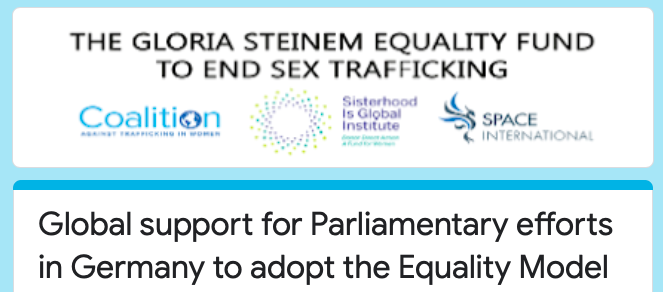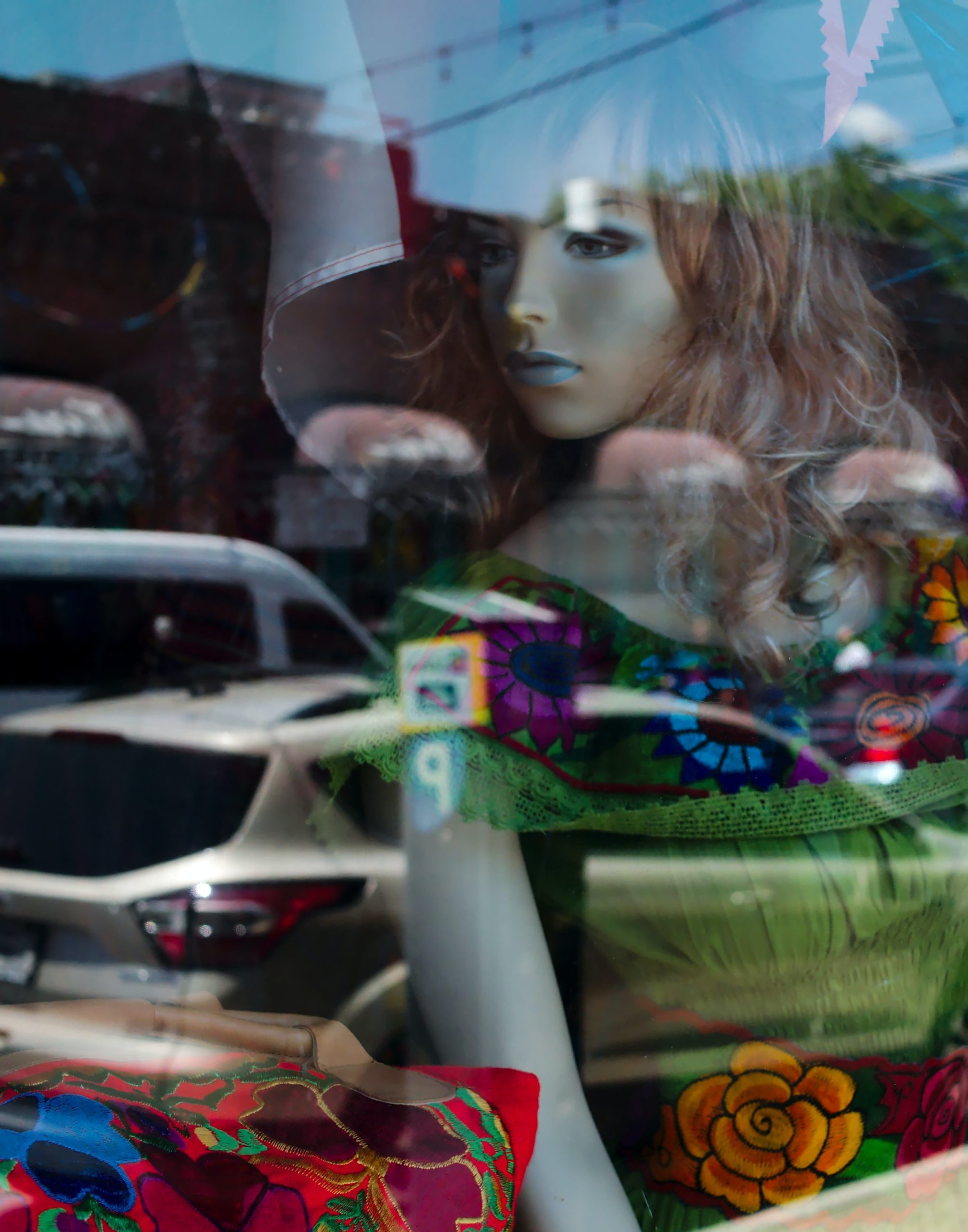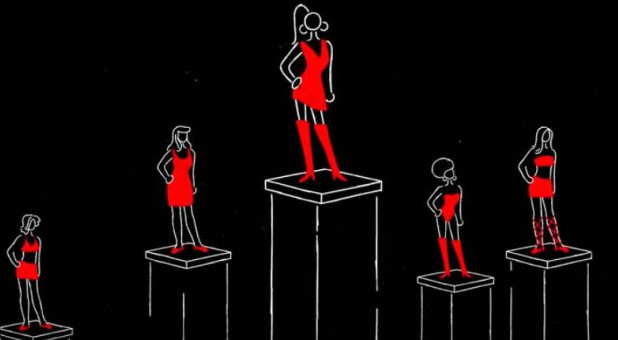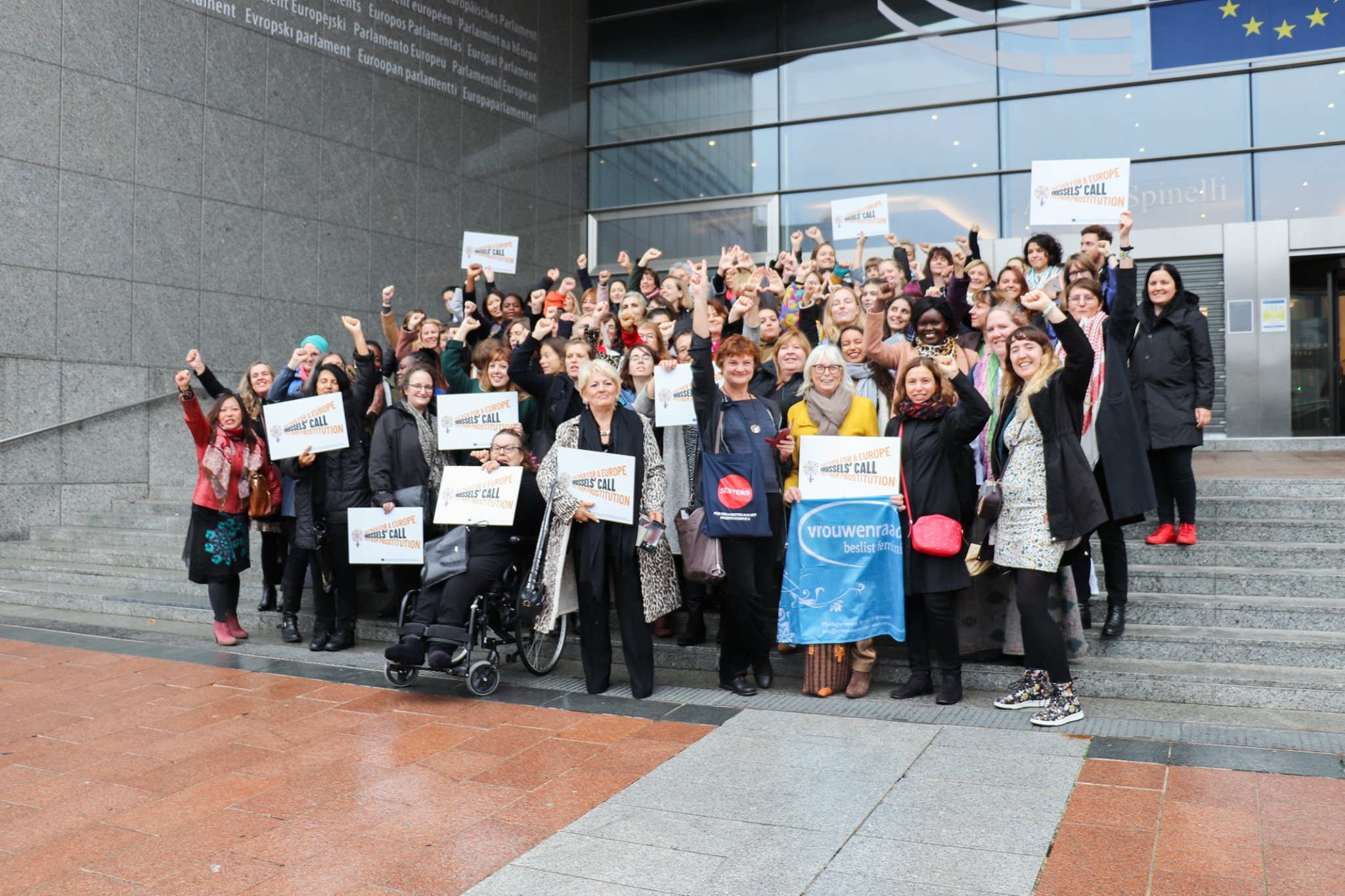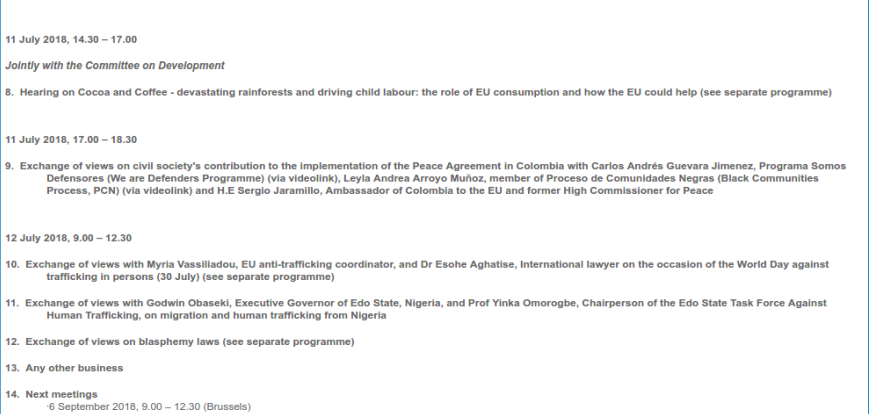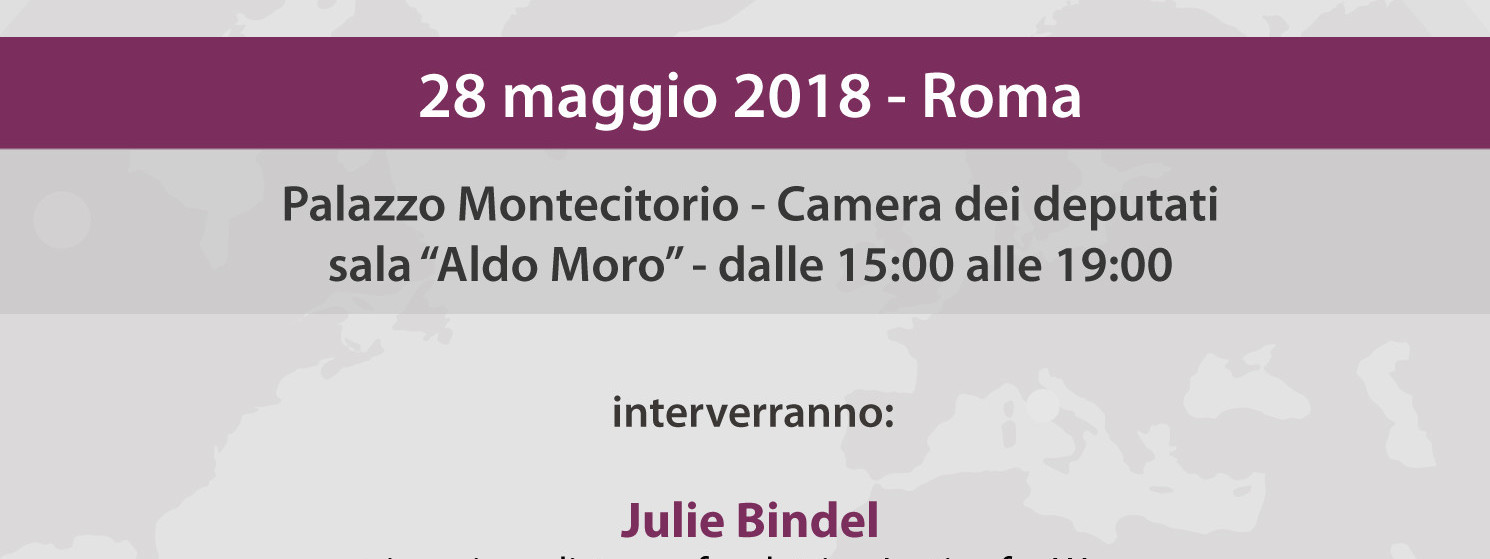The Gloria Steinem Equality Fund to End Sex Trafficking, the Coalition Against Trafficking in Women (CATW), SPACE International and The Sisterhood is Global Institute have written this letter to express the global support for Parliamentary efforts in Germany to adopt the Equality Model. Associazione IROKO has signed the letter and we give our full support to efforts in Germany and around the world to recognise that “prostitution is not work but rather a very harmful and dehumanising system, which fuels the sex trafficking and commercial sexual exploitation of women and girls”.
Liliam Altuntas, survivor of trafficking and prostitution, told IROKO “reading this letter has really made me happy, especially because Germany is a country that’s very close to my heart. Because when I was trafficked, I was sold and brought to Germany. Hearing that there are people who support and make way for this kind of legal change is really important to me. It would represent a real response to the suffering that we have endured, so I’m very happy to join this fight and I’m sure that we will win.”
We encourage our friends and supporters to read and sign the letter.
Click here to watch an interview with Dr. Ingeborg Kraus, conducted by ENoMW‘s Anna Zobnina, in May 2020 just after the publication of a letter signed by various German MPs calling for brothels to remain permanently closed after the coronavirus lockdown.

